3 Best Protein Foods to Accelerate Weight Loss and Increase Satiety
On my weight loss journey, one of the biggest challenges has always been controlling my hunger between meals. It seemed like no matter how much I ate, the feeling of fullness never lasted long. It was when I started paying more attention to the amount of protein in my meals that I noticed a significant change.
In this article, I share the secrets to protein foods that made all the difference for me and can transform your journey too.
In the universe of weight loss, where the pursuit of lasting results is the goal for millions, choosing the right foods proves to be the master key to success. But when we turn our attention to protein-rich foods, the narrative becomes even more fascinating and promising.
Protein, this powerful macronutrient, isn’t limited to being the building block of muscles; it plays a central role in promoting satiety, accelerating metabolism, and consequently, optimizing the entire weight loss process.
This article is your deep dive into the best protein foods that can be your true allies in weight loss, extending your feeling of fullness and optimizing your metabolic function. If you’re looking for a comprehensive guide on how protein can truly transform your weight loss journey, keep reading and unlock the secrets that will make all the difference in your diet.
Understanding the Importance of Protein in Weight Loss
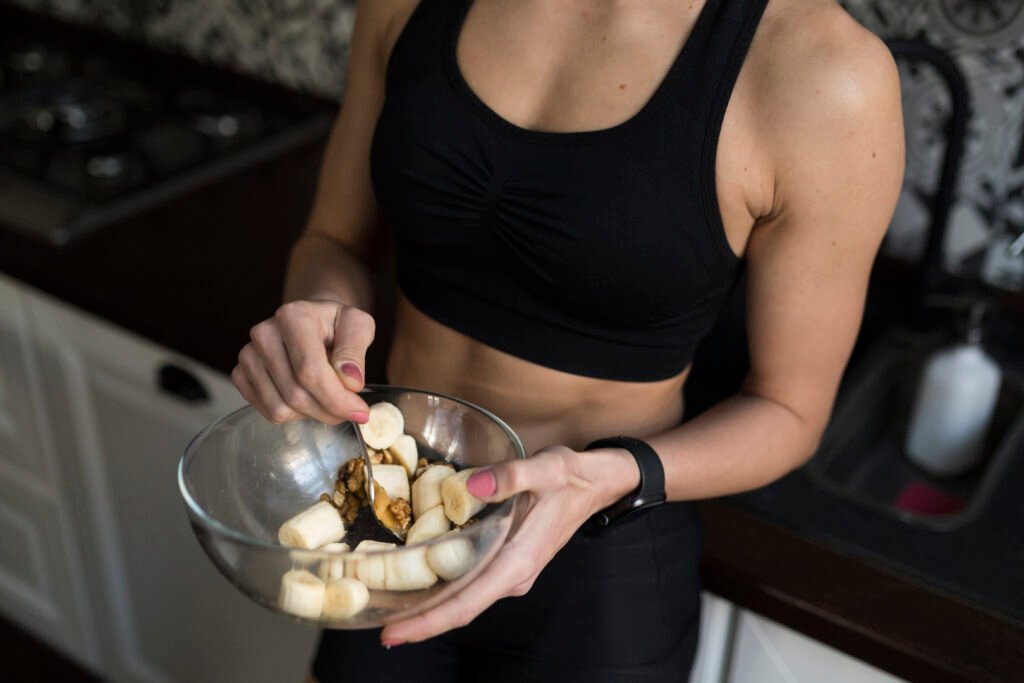
Protein foods are essential macronutrients that play several roles in our body, being fundamental for the growth and repair of tissues, the production of hormones and enzymes, and, of course, the maintenance of muscle mass. When it comes to weight loss, adequate intake of protein foods is crucial for several reasons.
First, protein foods have a higher thermic effect, meaning the body uses more calories to digest them compared to fats and carbohydrates. Second, they help regulate hunger hormones such as ghrelin and leptin, which play significant roles in satiety and appetite.
In addition, including protein sources in your meals can reduce feelings of hunger, leading to lower calorie intake throughout the day. This is especially helpful for those trying to lose weight, as satiety is one of the main challenges encountered during this process.
Therefore, understanding which foods are rich in protein and how to incorporate them into a balanced diet can be one of the most strategic steps in your weight loss journey.
The universe of proteins is vast and rich with options, each possessing its own unique characteristics and a distinct array of benefits for the body. Yet, when the objective is to accelerate weight loss and truly enhance the feeling of satiety, some protein sources stand out as genuine nutritional powerhouses. In this section, we won’t just list them; we’ll delve into some of the best options, revealing how each one can be the key piece missing to boost your weight loss and keep hunger firmly under control. Get ready to discover your new allies on the plate!
1.Eggs
Eggs are often considered one of the most nutritious foods on the planet. Packed with high-quality protein, eggs also contain important vitamins and minerals. One study showed that eating eggs for breakfast can lead to a significant reduction in calorie intake throughout the day.
In addition, eggs are a rich source of choline, an important nutrient for brain health. Incorporating eggs into your meals can be an effective strategy for those looking to increase satiety and lose weight in a healthy way.
2. Chicken Breast
Chicken breast is one of the most popular sources of lean protein, ideal for those looking to lose weight. Low in fat and high in protein, it is an ideal choice for muscle building and recovery. Eating grilled or baked chicken can be a great base for a healthy meal.
In addition, chicken breast is versatile and can be easily incorporated into salads, tacos, and soups, allowing for a variety of preparations that can keep meals interesting and tasty.
3. Legumes and Grains
For vegetarians and vegans, legumes and grains such as lentils, chickpeas and beans are excellent sources of protein. Not only are these foods rich in protein, but they are also full of fiber, which helps to increase satiety.
Lentils, for example, can be used as a base for soups and salads, offering a great option for those looking to lose weight without sacrificing flavor. 16 Best Foods for Weight Loss: Scientifically Backed Options for Your Diet!
How to Incorporate Protein-Rich Foods into Your Diet
Now that you know the elite of Protein Foods and understand the revolutionary impact they can have on your metabolism and satiety, the next crucial step is to learn how to effectively integrate them into your daily routine. The good news is, it doesn’t have to be complicated! With a little planning and creativity, you can transform your meals into true allies for weight loss, making strategic use of Protein Foods.
Here is a simple yet strategic checklist that can guide you on this journey to incorporate Protein Foods:
- Include a Quality Protein Source in EVERY Main Meal: Think of breakfast, lunch, and dinner as golden opportunities to fuel your body with Protein Foods. Starting the day with eggs, Greek yogurt, or a protein shake can reduce hunger in the hours that follow. For lunch and dinner, opt for chicken breast, fish, lentils, tofu, or lean red meat – all excellent Protein Foods. This ensures a constant flow of amino acids and maximizes the thermic effect of Protein Foods.
- Transform Your Snacks with Smart Protein Choices: Say goodbye to empty-calorie snacks. Instead of cookies or sweets, choose Protein Foods for your breaks. A handful of nuts, a cup of plain Greek yogurt, a slice of lean turkey breast, or vegetables with hummus are excellent choices that prolong satiety and prevent hunger spikes, all derived from smart Protein Foods selections.
- Explore the World of New Recipes: Don’t be afraid to get creative in the kitchen! There’s an endless array of delicious and easy recipes that highlight Protein Foods. Look for ideas like quinoa and chicken salads, lettuce wraps with lean ground meat, loaded omelets, or varied Protein Foods smoothies. Diversity keeps interest high and makes dieting enjoyable.
- Pay Attention to Portions: The Key to Sustainability: While Protein Foods are beneficial, portion control remains fundamental for successful weight loss. Use smaller plates, pay attention to your body’s satiety cues, and avoid overeating. A portion of Protein Foods roughly the size of your palm is a good starting point for most meals.
- Seek Balance: Protein Foods, Complex Carbohydrates, and Healthy Fats: Protein Foods are powerful, but they don’t work alone. For an optimized and complete diet, balance your intake of Protein Foods with complex carbohydrates (like sweet potatoes, brown rice, oatmeal) that provide sustained energy, and healthy fats (abocado, olive oil, nuts) that contribute to hormonal health and satiety. This synergy ensures your body functions at its peak capacity, with Protein Foods playing a central role.
By following this practical and intelligent checklist, you will not only begin to notice significant improvements in your satiety and, consequently, a reduction in overall calorie intake, but you will also discover how weight loss can become an easier, more enjoyable, and, above all, sustainable journey, thanks to the effective integration of Protein Foods.urney.
The Role of Protein in Regulating Metabolism
Beyond being a champion of satiety, protein plays a crucial and often underestimated role in regulating and accelerating metabolism. This dual function makes it an indispensable macronutrient for anyone seeking effective weight loss.
When we consume protein, our body experiences a temporary increase in its metabolic rate, a phenomenon known as the Thermic Effect of Food (TEF). This means that, compared to fats and carbohydrates, the body expends significantly more calories just to digest, absorb, and metabolize protein.
Scientific studies consistently demonstrate that higher protein intake can lead to greater fat loss and the preservation of valuable muscle mass during the weight loss process. For those struggling with a slow metabolism, incorporating more protein into your diet is not just an effective strategy; it’s a game-changer for boosting calorie burning and achieving faster, more lasting results.
To illustrate this powerful connection, see the table below that compares the thermic effect of different macronutrients:
| Macronutrient | Thermal Effect (%) |
|---|---|
| Proteins | 20-30% |
| Carbohydrates | 5-15% |
| Fats | 0-5% |
This data demonstrates that by increasing your protein intake, you can potentially optimize calorie utilization and promote more effective weight loss.
See more articles about protein-rich foods:
- 16 Best Foods for Weight Loss: Scientifically Backed Options for Your Diet!
- 7-Day Healthy Meal Plan for Effective Weight Loss: Your Complete Guide
Future Trends in Weight Loss and Protein Foods
The food industry landscape is a constantly boiling cauldron, with diet and nutrition trends transforming at an impressive speed. In recent years, we’ve witnessed an exponential growth in interest in protein-rich foods, driven by the search for healthier and more sustainable options.
This wave encompasses everything from plant-based alternatives, which are steadily gaining ground on the conscious consumer’s plate, to protein-fortified food products, developed to meet the demands of an active lifestyle.
One of the most fascinating and disruptive emerging trends is the rise of alternative proteins, such as those derived from insects and algae. These innovative sources are not only highly nutritious and packed with benefits; they represent an environmentally friendly solution to the growing global demand for food.
Furthermore, food technology is paving the way for the development of new forms of protein, making them incredibly versatile and easy to integrate into daily diets, promising to revolutionize how we nourish ourselves.
My Tips:
- 10 Best Protein Foods for Weight Loss:
- How Eating More Protein Helps You Lose Weight:
- The Best Protein Source for Fat Loss I Wish I Started Eating Sooner:
Frequently Asked Questions (FAQs)
Below, we have compiled some frequently asked questions about protein-rich foods and weight loss:
- How much protein should I consume per day? The amount varies depending on your goal and level of physical activity, but in general, it is recommended that you consume between 1.2g and 2.0g of protein per kilogram of body weight for those who want to lose weight.
- Can I lose weight just by increasing my protein intake? Although protein helps with satiety and speeds up your metabolism, it is essential to maintain an adequate calorie balance and a balanced diet in general.
- Are protein supplements necessary? They are not necessary for everyone, but they can be useful for those who have difficulty meeting their daily protein goals through food alone.
- Are high-protein foods expensive? While some may be more expensive, many sources of protein, such as legumes and eggs, are affordable and can fit into a budget.
- Can I reduce body fat with a high-protein diet? Yes, a high-protein diet can help reduce body fat, especially when combined with regular exercise.
Article Notes
This article focuses on the effectiveness of a high-protein diet for weight loss, increased satiety, and optimized metabolic function. It highlights the importance of protein, its benefits for weight loss, and identifies protein-rich foods. It also provides practical tips for incorporating these foods into a diet and explains protein’s role in boosting metabolism.
- Importance of Protein: Protein is essential for tissue repair and growth, hormone and enzyme production, and maintaining muscle mass.
- Benefits for Weight Loss:
- Thermic Effect: Protein has a higher thermic effect compared to fats and carbohydrates. The body uses more calories to digest protein, boosting metabolism. [20-30%]
- Hormonal Regulation: Protein helps regulate hunger hormones like ghrelin and leptin, increasing satiety and reducing appetite.
- Reduced Calorie Intake: Protein-rich foods reduce feelings of hunger, leading to lower calorie intake.
- Protein-Rich Foods:
- Eggs: Highly nutritious, packed with protein, vitamins, and minerals.
- Chicken Breast: Lean protein source, ideal for muscle building and recovery.
- Legumes and Grains: Excellent protein sources for vegetarians and vegans, also rich in fiber.
- Incorporating Protein:
- Include a protein source at every meal.
- Use protein as a snack.
- Balance protein intake with complex carbohydrates and healthy fats.
- Protein and Metabolism: Protein plays a crucial role in regulating and accelerating metabolism.
- Future Trends: Increasing interest in plant-based and protein-fortified foods.
- Common Questions:
- Daily Protein Intake: Recommended intake is between 1.2g and 2.0g per kilogram of body weight for weight loss.
- Protein Supplements: Can be useful for those struggling to meet daily protein goals through food alone.
- High-Protein Diet and Body Fat: Can help reduce body fat when combined with regular exercise.
Integrating Knowledge into Practice
The weight loss journey is personal and can vary from person to person. However, adopting a science-based approach, which includes increasing your protein intake, can be an effective way to achieve your goals. By incorporating protein-rich foods into your diet, you will not only take care of your health, but also promote a sense of well-being and satiety.
In the end, remember that dieting should not be a punishment, but rather a journey of discovery and pleasure. Stay curious and open to trying new foods, recipes and combinations. By doing so, you will be on the right path to a healthier and more balanced life.
If you are interested in more tips on nutrition and weight loss, explore our blog for more relevant content and strategies that can help you on your journey. Don’t hesitate to share your experiences and results — your journey may inspire others!

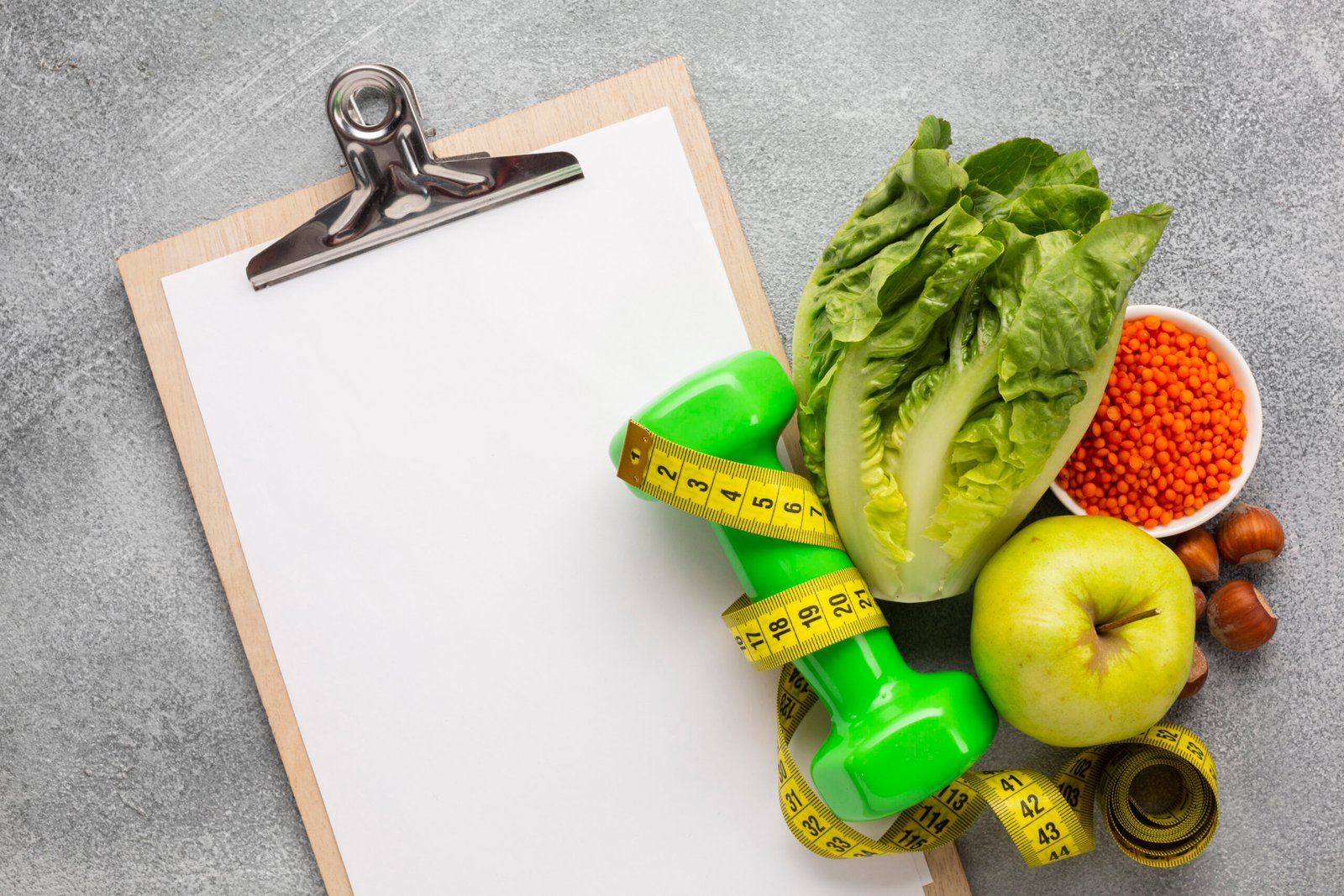

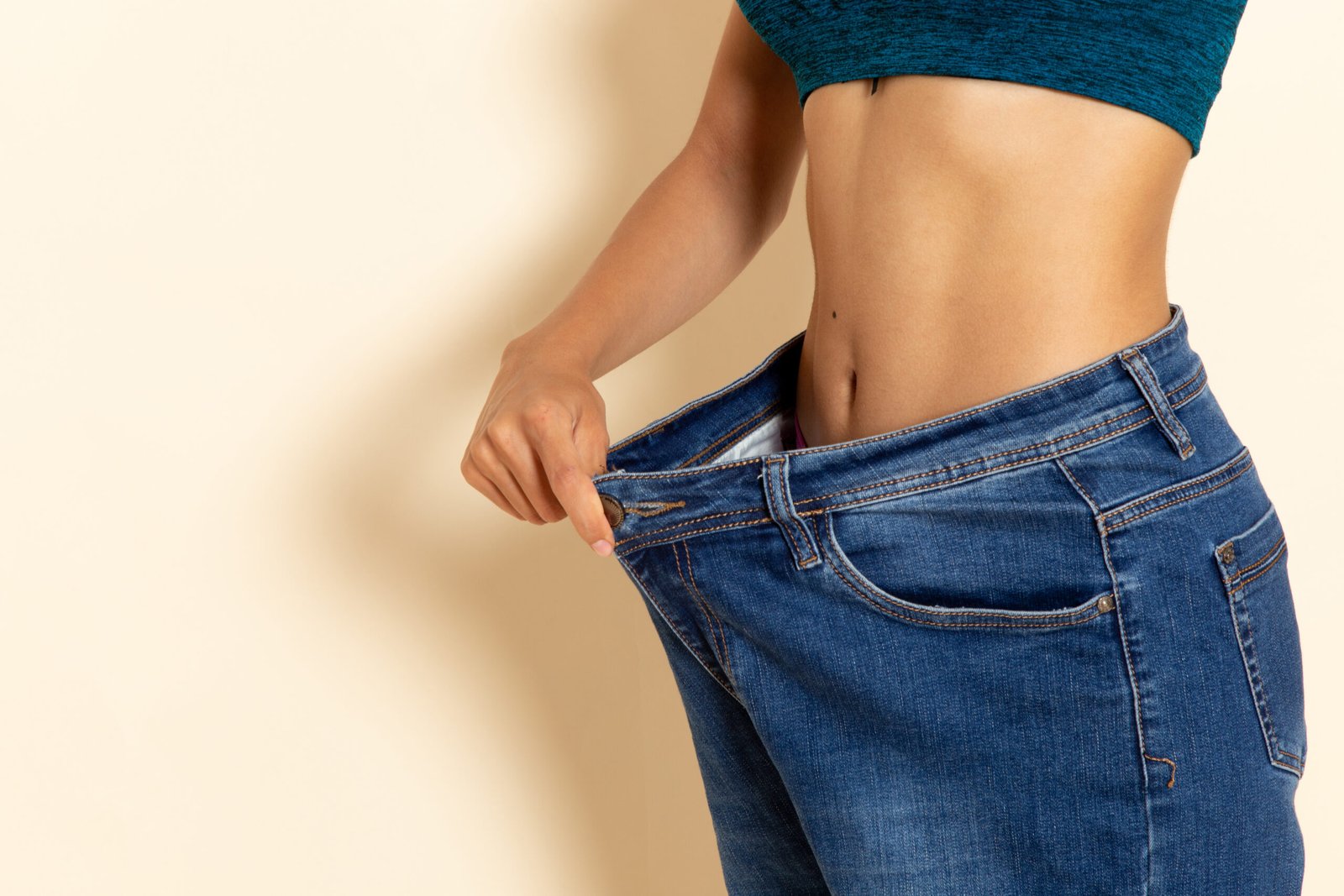


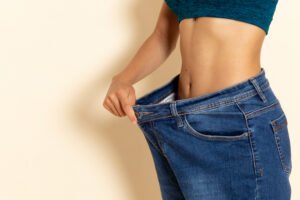
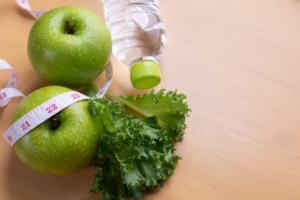





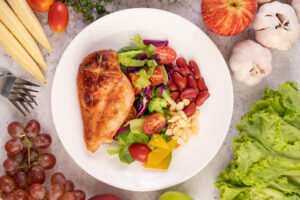
3 comments